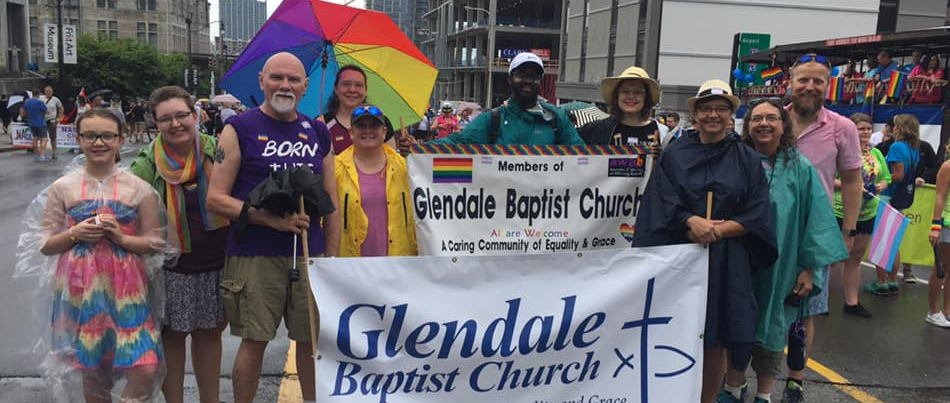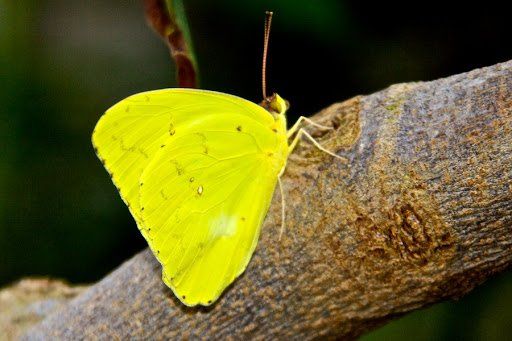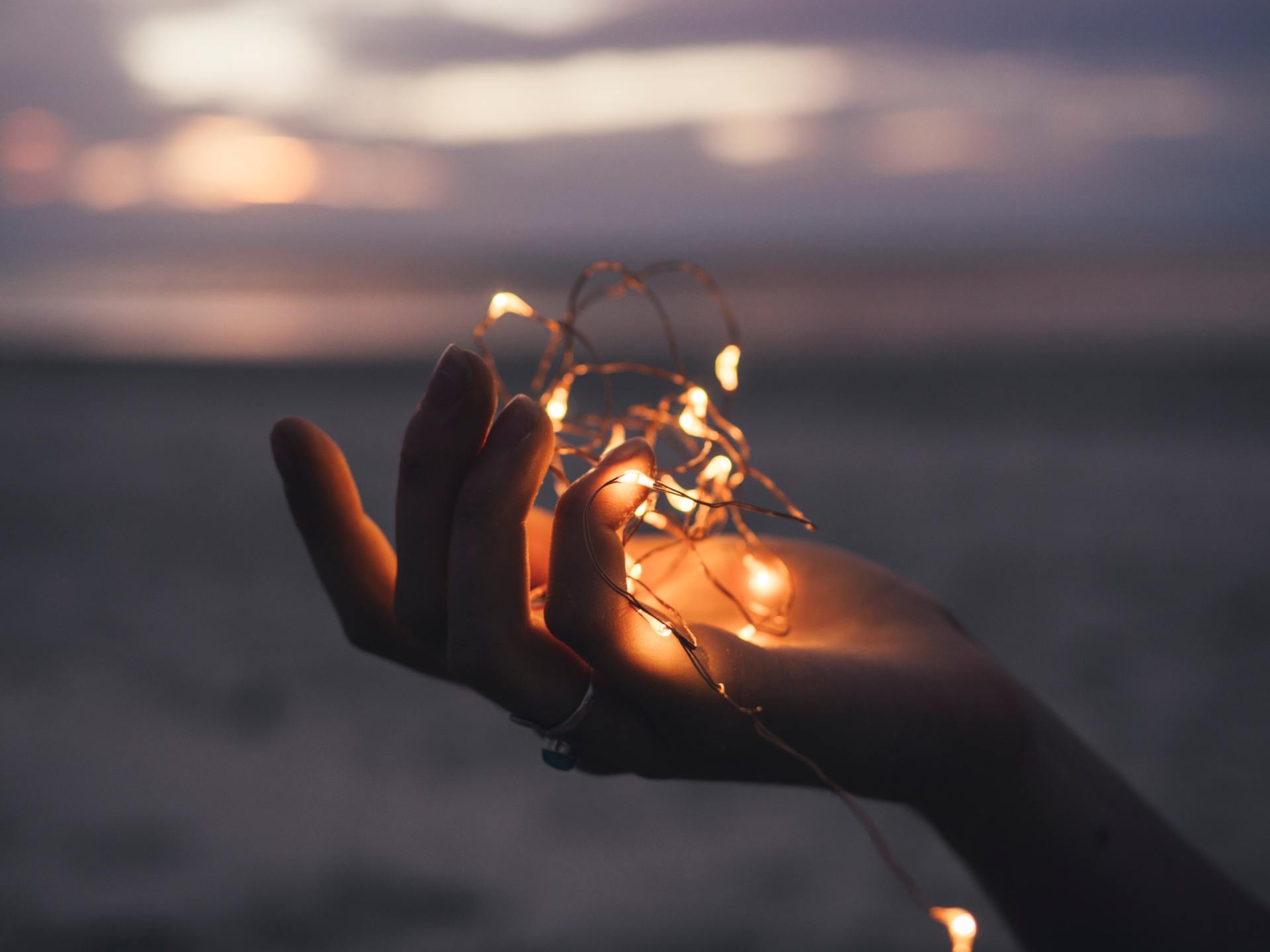The Way of Love
By Amy Mears February 24, 2020
The Way of Love
In our Purpose Statement, we name that we’re followers of Jesus “on the Way of Love.” The idea of being on this particular path comes from teachings of the desert mothers and fathers of 1500+ years ago, who considered life in the monastery (or for us, life in the church), as a school—a shared life where we are learning to love. Learning to recognize love, learning to receive love, learning to give love, learning to live in Love, the church is a laboratory. We are going to Love School.
Modern-day prophet and Kentucky farmer Wendell Berry says it like this: I believe that the world was created and approved by love, that it subsists, coheres, and endures by love, and that insofar as it is redeemable, it can be redeemed only by love.” The Art of the Commonplace: The Agrarian Essays of Wendell Berry (ed. Counterpoint, 2003) - ISBN: 9781582439242 So even when we have overslept and missed class, when we’ve got the flu at exam time, when we surf the web during an important class activity, there’s something irrefutable about our community’s encouragement. We get the notes from a classmate, we find a tutor, we go to the Love lab, we find a study partner until we get caught up on the material.
Wendell Berry echoes what Dorotheos of Gaza described to his desert community of long, long ago. If a group of people practicing the Jesus-following Way stands in a circle and God is the center, then every step closer to God brings the individuals closer to one another. Every step closer to one another brings them closer to God.
Unfortunately, in the school of recurrent-themes-of-human-behavior, not everyone gets the memo and even some of us who do receive it choose not to pay attention. Like clueless Joseph in the Hebrew Testament’s Genesis story, arrogantly telling his dreams to his siblings and parents, “how not to be on the road together” is sometimes more reflective of our situation.
Desert cisterns, wild animals, camel caravans bringing traders and goods from far-off lands: the story of Joseph, thrown into a cistern to be sold off by his brothers, highlights the conflictual nature of the wilderness. It is at once desolate and rich, stifling and causing despair while providing life and insight that can’t be found anywhere else. The desert is death and life. The wilderness is beauty and terror.
The Desert Mothers and Fathers, the Ammas and Abbas of the third and fourth century deserts of Egypt and Gaza and Syria and Turkey, were about learning to love. They were about learning how not to snipe at each other. They realized that at times each one of them might be in danger of a toss into the cistern by their siblings and they were determined to overcome the impulse to violence large and small. Their purpose was a journey toward how to be humble, how not to resent one another, and how to resist comparing themselves to one another. Brilliant and compassionate Roberta Bondi says, “The Desert Mothers and Fathers claimed no other virtue greater than that of not being scornful.” Roberta Bondi, To Love as God Loves
Learning to love God, to love yourself, and to love your neighbor is, above all, about learning how not to judge those with whom you share the world. “Don’t judge fornicators,” say the Ammas and Abbas, “because the one who said, ‘Don’t fornicate’ also said, ‘Don’t judge.’” And there, we have to fill in our own favorite objects of scorn. Don’t judge those who gossip. Don’t judge those who scorn you. Don’t judge those who aren’t as responsible as you. Don’t judge those whose values are different. Because the one who says, “Don’t gossip, don’t be scornful, don’t be irresponsible, don’t neglect these things we value,” also said, “Don’t judge.”
There is an awful lot of wisdom in the desert. Personally, I would rather avoid being dropped into a cistern, and I would prefer to learn desert wisdom while photographing wildflowers and birds and lizards and beautiful sunsets; while gazing in awe at mountain vistas and at tiny, hidden forms of life and beauty. Like Joseph, though, I’m obnoxious. I like to tell my dreams. I’m insensitive to the feelings of those in my community. I judge. It’s a good thing that I enjoy looking up from the cistern where my options are limited to activities like mapping the constellations.
And I appreciate more and more the voices in my community (voices that echo Joseph’s brother Judah) who say, “Let’s not harm her because she’s our sister—she’s family.” For us, being on the Way of Love brings lessons in personal prayer, common worship, everyday work, and service in the cause of following Jesus. The community is the laboratory in which we learn these life-saving, life-giving wilderness survival skills. My work is to be a better student.
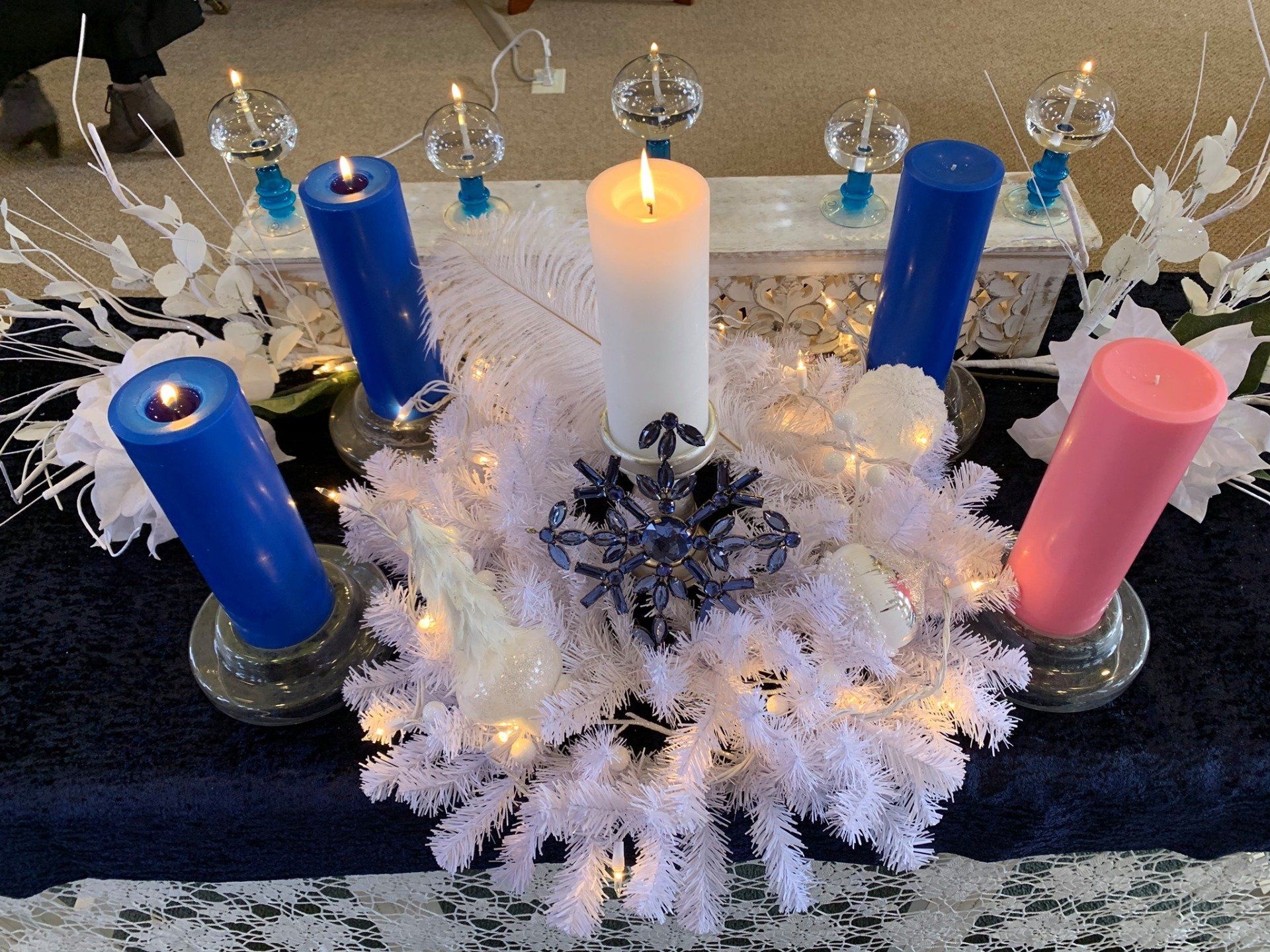
The Sundays in Advent have a few out-of-the-ordinary opportunities! Elementary aged kids are invited to join an inter-generational Sunday School event each Sunday in the Fellowship Hall. Lauren Plummer (and several others) will be leading sessions in collage creation. It will be relaxed and a chance to be involved with some new folks in chatting and creating together. Younger children (babies, preschoolers, and Kindergarteners) are welcomed to continue preschool Sunday School as usual upstairs with Lori and Thomas Williamson. All ages (literally!) will gather in the sanctuary at 10:30 so that families can enjoy the first 10 minutes of worship together before the preschoolers go to Worship Care. There will be bells, music, the processional, a hymn, lighting the Advent candles, and the Time with Glendale Kids. Then the youngest Glendalers can move into the Worship Care time. There will be quiet activity stuff in the kids corner in the back of the sanctuary — but there should be plenty of movement and sights and sounds to entice the interest of all. For more information, go here.
In Special Called Business Meeting on Wednesday evening September 28, Glendale’s Leadership Council recommended 1) approval of a Minister of Music job description ( viewable here ) and 2) that the Music at Glendale Task Group shift their responsibilities and become a search committee. The recommendation was unanimously approved. The Minister of Music Search Committee will be accepting letters of application and resumes through Sunday, October 23. Please pass this information along to those you know who might be interested. Applicants can send material to gbc@glendalebaptist.org . Please remain mindful and prayerful as the Search Committee goes about their new work. Thanks to every single person who has planned, led, and staffed Glendale’s musical efforts since Easter!
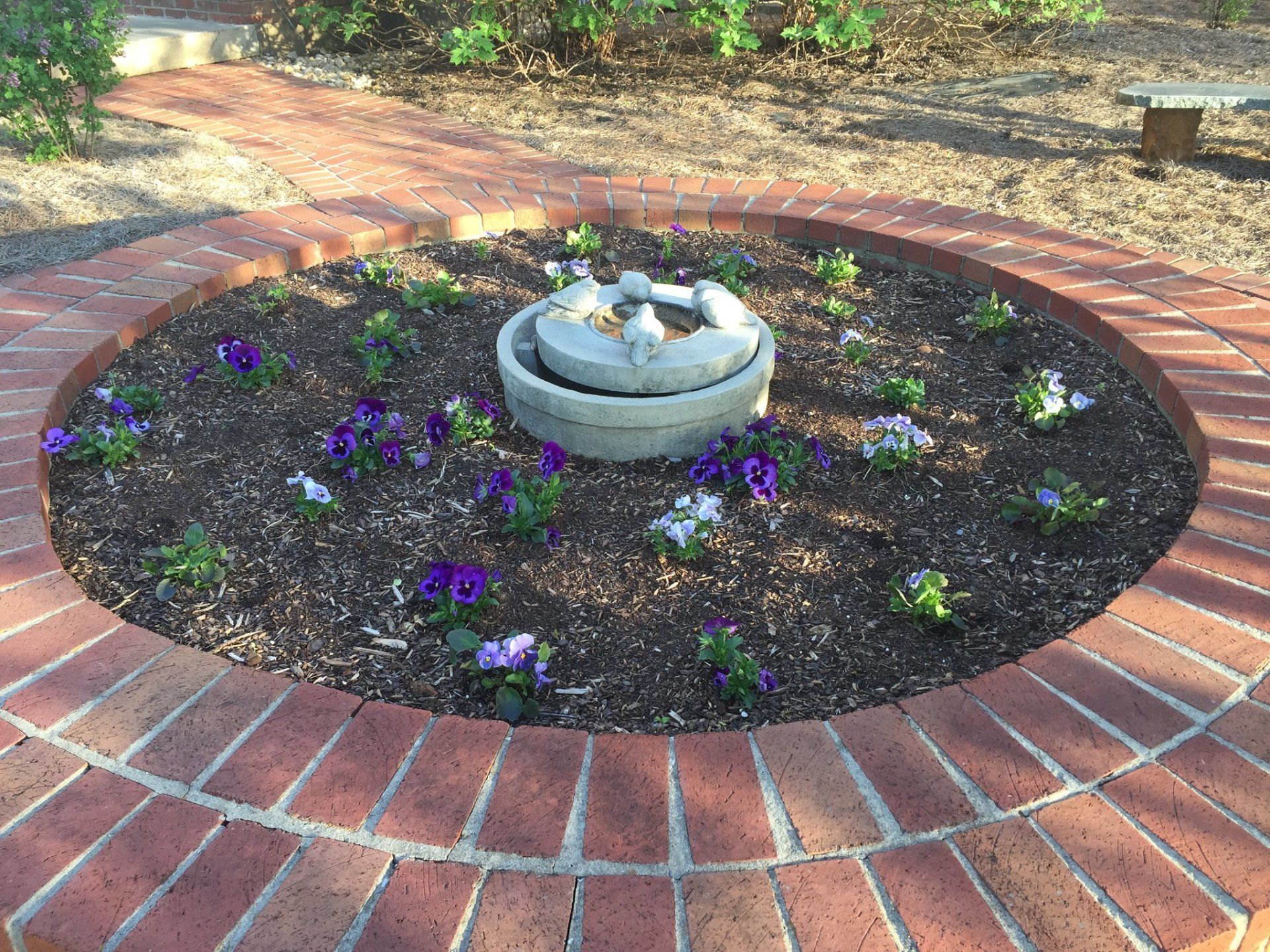
“Are you enjoying your new tires,” asked the tire guy at Sears. I had bought 4 new ones a month before and had brought them back in for the free balance-and-rotation thing. And then the ridiculous question. Was I enjoying my new tires? How on earth does someone enjoy a tire? Or even 4 of ‘em? There are books that I enjoy over and over and over again. The Little House books when I was a kid; Prodigal Summer holds the favored position in adulthood. I enjoy baking a brown-sugar-pecan pound cake and I enjoy eating a slice. I enjoy inspecting my garden boxes and wildflower garden and cutting garden each day. I enjoy the feel of the cool water running down the kayak paddle onto my arms on a hot day. Tires? No. No, I was not enjoying my tires. Not even remotely. Tires do their work down there on the 4 corners of the vehicle. Best-case scenario: I think about them when I’m getting ready for a road trip and go to the tire place for inspection and rotation. Worst-case scenario: the imagination sprints. They do their job, lord willing, and I rely on their appropriate functioning. What a boon, then, to experience those things that are, in a fairly thankless setting, doing their job and being enjoyable! I speak, of course, about my co-workers. The Glendale church staff and the Glendale Leadership Council are diligently, creatively, energetically, inquisitively, adventurously doing their work in the 4 corners of the congregation with such grace. The Glenterns add laugher and spice and reality. Alan and April and Alvin and Beth and Delvakio and Don and Eileen and Jake and Jon and Kelly and Lauren and Selena and Summer are attending their service to the Sacred through their service to Glendale all the time. And they’re being pleasant while they do it. They’re checking on you and they’re checking on me and they’re checking on each other and they’re checking on their neighbors. They’re learning new technologies and teaching them to me and some of you with such kindness. They’re asking what we can do better; they’re asking who we’re not seeing and how we can best make contact; they’re paying attention to finances and children and disinfecting the church kitchen and youth and the lectionary and microphones; they’re wondering how best we can thank Glendale for the privilege of sharing life here. A global pandemic did not cause any of these things. They were already in place. The pandemic has, however, given time and opportunity to recognize and give thanks for life’s blessings. These people are at the very top of my long list of blessings. I am enjoying doing church with them and with you. Thanks be to God.
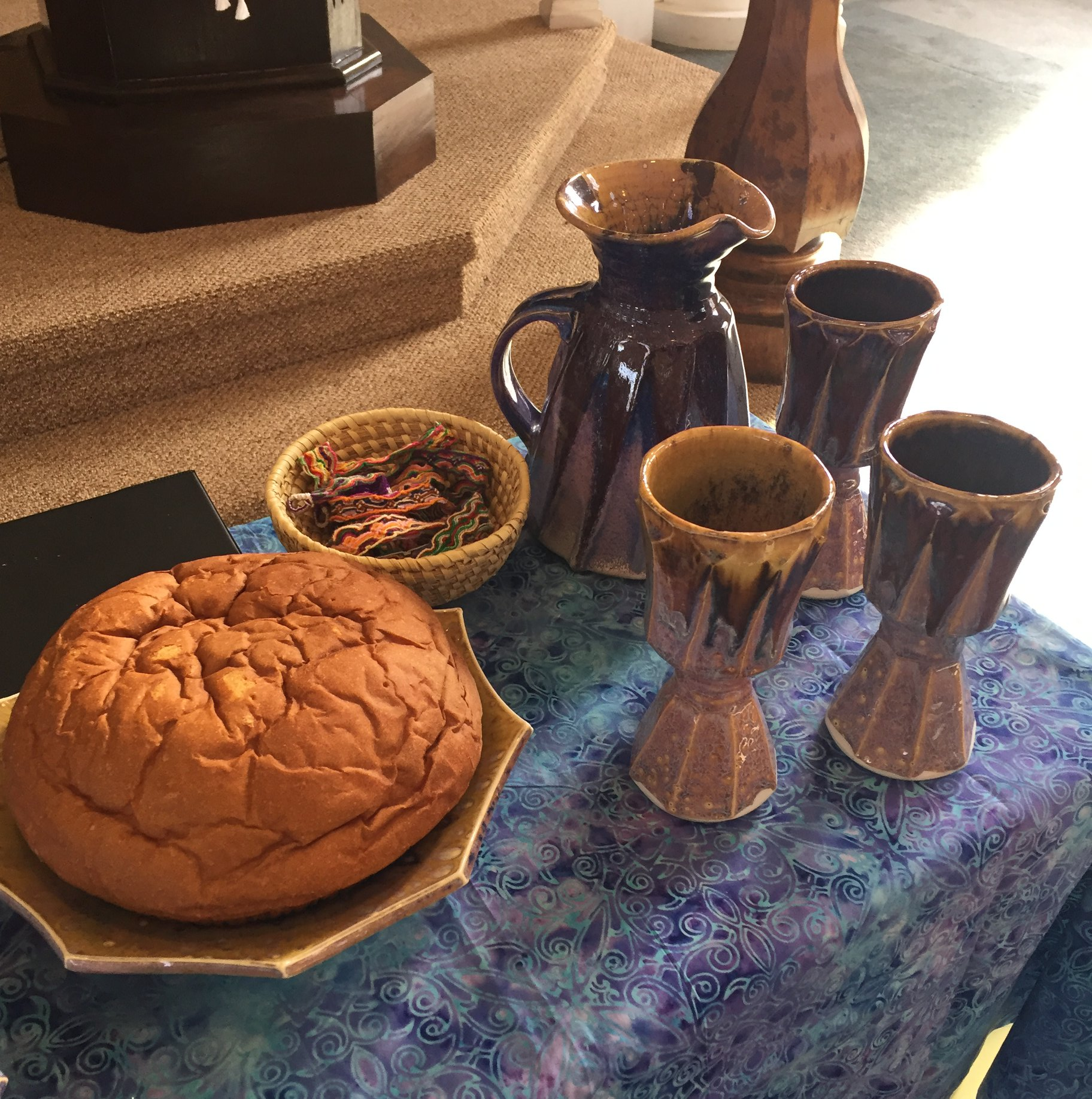
Dear friends, I received an email this week from a journalist asking me to contribute to an article about our current church-life situation. Here’s the invitation: “I’m working on a story about how adaptations and innovations during this time might produce practices with lasting effect. What are you and your congregation doing now as a result of the pandemic that might continue as a good practice well after the crisis?” Here is my response: Thanks for your email invitation. Here’s my thinking on: Pandemic’s Positive Lasting Effects ~It’s possible that there will be long-term recovery of the hand-written gesture. People have been moved to write to one another—especially people that they perceive would be lonely or particularly isolated. Our kids’ Sunday School teachers mail care packages of material for the children to open in the usual Sunday School time when they’re together by zoom with the teachers. Everybody has been delighted with that experience. ~The congregation has a stronger understanding of the importance of affinity groups and other small groups. There is a fairly broad sense of concern for people who aren’t obviously or visibly connected to other church members. ~There exists a certain intimacy in worship by being up close and personal with worship leadership. Maybe it’s because the worshiper’s face is literally 12-18” from the person who is leading/preaching/praying/singing. It is the absolute opposite of the “theater-seating” kind of worship experience that seems to have engaged a significant part of the worshipping world of late. Every worshiper is face to face with almost every other worshiper (a few only connect through audio.) “Intimate” is the only word that comes to mind. I’m not sure how we that sense could be incorporated when we are back in the sanctuary. I have a hunch, though, that our sense of connectedness will be enhanced in the long term. ~Church members are experiencing an increase in active awareness of who might need care. There’s always been a generalized kind of benign attention. “Who could use a phone call or a card?” kind of thing. Now there are earnest volunteers to care for folks as though lives depend on it. Who needs our help? Groceries? Cards? Call? Pharmacy runs? WILL YOU LET US KNOW HOW WE CAN HELP? I’m hoping that sense of urgency continues. ~I’m feeling an enhanced connection because of being all up in each other’s faces for several hours a week. The isolation has contributed to more consistent attendance at events. Church members I would only see in passing on Sunday mornings I’m now face-to-face with for an hour and a half on Sundays, an hour and a half on Wednesdays, and a half hour on Fridays. The feeling that we know each other better is sure to live on past the cloistering. ~More people are using online giving platforms. It’s possible that this will continue. That will require us to do what people have been asking for (and we’ve been remiss in delaying): placing “I gave electronically” cards in the pew racks so that everybody who gives can respond to their encounter with the Holy by bringing something forward in worship. (We bring offerings forward rather than having them collected by passing plates. We formed this habit when we were connected for a couple of years with a congregation in NOLA’s 9th ward after Katrina. Worshiping with them taught us the importance of physically moving in worship as we embody our gratitude and response to the work of the Holy in our lives.) ~There is already an enhanced sense of the importance of remembering those who have moved away as being a significant part of what makes us who we are. As we’re gathering for worship or prayer or storytime or whatever, long-timers are introducing new Glendalers to people who used to be here but now live far away. Who would have thought that a pandemic would bring together people formed by their church life 15 years ago and our brand-new members? ~In a related thought, there is an enhanced understanding of the importance of this place, of our particular way of experiencing church, on people’s lives—especially on young ministers. We’ve been joined in worship, just in the last 2 weeks, by TEN Glenterns (the name by which we lovingly know our interns.) They’ve come in from Flagstaff and Detroit and Seattle and all over to, well, I suppose to do several things. To experience worship that they’re not having to lead, maybe. To get ideas for their own use as worship leaders. To re-connect with people who were critically important in their own formation as ministers. It has been a moving thing for us to see these young pastoral ministers in worship. ~Because we are zooming worship live—each worship leader from their own home—everybody “present” is sitting forward in anticipation of what’s going to blow this time. (Something usually blows.) It reminds me of the Annie Dillard quotation about worship: "Why do people in church seem like cheerful, brainless tourists on a packaged tour of the Absolute? … Does anyone have the foggiest idea what sort of power we blithely invoke? Or, as I suspect, does no one believe a word of it? The churches are children playing on the floor with their chemistry sets, mixing up a batch of TNT to kill a Sunday morning. It is madness to wear ladies’ straw hats and velvet hats to church; we should all be wearing crash helmets. Ushers should issue life preservers and signal flares; they should lash us to our pews. For the sleeping god may wake someday and take offense, or the waking god may draw us to where we can never return.” I saw an email reminder of a Holy Week service this morning that said, “Tenebrae Service: watch at 6:30 on Facebook.” I hope that Glendalers will retain the sense of expectation when we return to worship in the sanctuary. It’s not a spectator sport. So these are some of my random thoughts. Hope they spur your own creativity as you write! Peace, a good Holy Week, and wash your hands, Amy
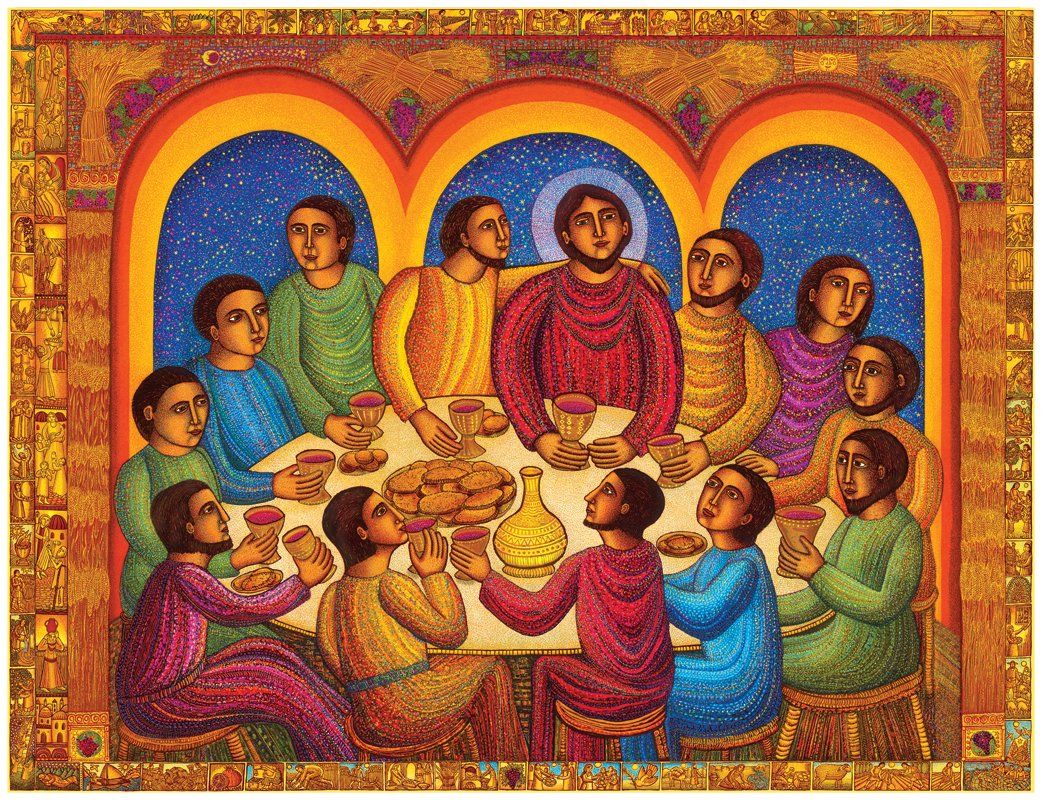
The Last Supper 2009 John August Swanson During Holy Week we are reminded of the last supper Jesus shared with his friends. As you already know, the scene will change from community table fellowship to desperate garden prayers alone, betrayal, arrest, crucifixion, death, and, finally, resurrection. Not gonna lie… It all feels particularly heavy this year. I’m on the edge of my seat, leaning in to new life in every way possible. I hope you are too. But first, I want to talk about tables. What might they signify? They invite community . Don’t get me wrong, the idea of community sounds great to me. Right now it also scares me like no other thing on the planet. It is messy. It is complicated. It forces me to get out of my head. And, often, I rather like it there… The solace of being alone means no one can hurt you. But that also means no one can love you. They get turned over . We typically read that Jesus story as a win, right? I don’t disagree with that interpretation. Jesus was legitimately angry and he wasted no time upsetting the prescribed order so that all could experience God’s love. But what about all the brokenness that was left when the tables flipped? Do you sweep it up and throw it away? Mend it and make it more beautiful as a kintsugi artisan might do? I hate destruction. But without it nothing new is born. Some of them are headless . When I came across the above image of the Last Supper, that was my first observation. Nobody’s at the head of the table. Who is in charge of this group of diners? Who is keeping the conversation flowing? Making sure glasses are filled? For someone whose primary orientation in the world is to take charge in the absence of leadership, I am deeply concerned about that bunch. Also, I wonder if they are all in charge of loving each other and if that somehow magically works? Some of them welcome everyone . That was my second observation to Swanson's rendering. The shift from exclusively cisgender males around the table to the inclusion of feminine and androgynous figures is a significant theological proclamation. Who does the Holy welcome to be nourished at the table? Everyone. That's troubling if the table you're setting doesn't do the same. As we gather around our respective tables this holy week, we might consider remembering these life-giving gospel truths… “Behold I am making all things new.” –God “Taste and see that God is good.” –The Psalmist “Let us love one another, because… God is love.” –John the Evangelist “Love your neighbor as you love yourself.” -Jesus “I give you Peace. Do not let your hearts be troubled. Do not be afraid.” -Christ I’m holding each of you close and look forward to seeing you via Zoom on Holy Friday at 7pm and again on Easter morning at 10:30 for worship. I love you. Kelly P.S. Scriptural references include, but may not be limited to, Matthew 21:12, Isaiah 43:19, Isaiah 65:17, Revelation 21:15, Psalm 34, 1 John 4:7-8, John 14:27. Special thanks to Vanderbilt for Swanson’s art. More information is available at http://diglib.library.vanderbilt.edu/act-imagelink.pl?RC=56552

“bi·fo·cal /ˈbīˌfōk(ə)l/ adjective (usually of a pair of eyeglasses) having lenses each with two parts with different focal lengths, one for distant vision and one for near vision.” Dear Friends, It was inevitable, I suppose… this need to correct my failing vision. Last week I began adapting to life in new glasses. Some observations: 1. I look down a lot. What’s that about? Can I not trust my own feet to take me where I need to go? When I look at them with these new eyes they are distorted and the ground is weirdly shaped. My brain is somehow tricked into thinking there are hills while my feet feel straight, solid ground. I wonder why I’ve been in the habit of not trusting my feet to take me where I need to go. I wonder why I feel the need to look over them, to watch them. I wonder why I’m afraid to fall. Have I always watched my feet so carefully? If not, when did I start? Why don’t I look straight ahead, reaching for what is right in front of me? 2. I look through the wrong part to see what I need to see. “It’s a simple neck tilt.” That’s what the optician told me. “Look here to see into the distance, here for your computer, and here for books.” My body is still learning these tricks. My eyes can’t see everything from the same location. They must adjust. Making my eyes behave has been difficult. They are a part of me, after all. Which is to say, stubborn. I’m learning that if I want to see clearly the beautiful life unfolding in front of me, I have to change behaviors. 3. They don’t exactly fit. They arrived the day we were ordered to shelter at home, so I didn’t get a custom fit. No human to human interaction… we might kill each other. I get it. I’m not arguing about that. Just an observation that in the absence of human communication, vision is compromised . In the absence of one saying what is too tight or too loose and the other hearing those words and making adjustments accordingly, the places I’m supposed to look (see item 2 above) slide around all over the place. It makes it harder to see properly. Here’s the long and the short of it... I just want to be able to make my way through this world . And I don’t think I’m alone in that. Artist Lauren Wright Pittman seems to understand. I love her 2018 work, pictured above, called Multitudes . When asked about the work she says the following, "I’ve been thinking a lot about the journey to finding and expressing voice. I wanted to image snapshots of this journey, and highlight the beauty of this unfolding— especially of those who have a more difficult struggle in finding space and freedom to lift their voice." Do you see what I’m saying? Love, Kelly P.S. Thank you to Vanderbilt for the use of Lauren Wright Pittman's art. http://diglib.library.vanderbilt.edu/act-imagelink.pl?RC=57092
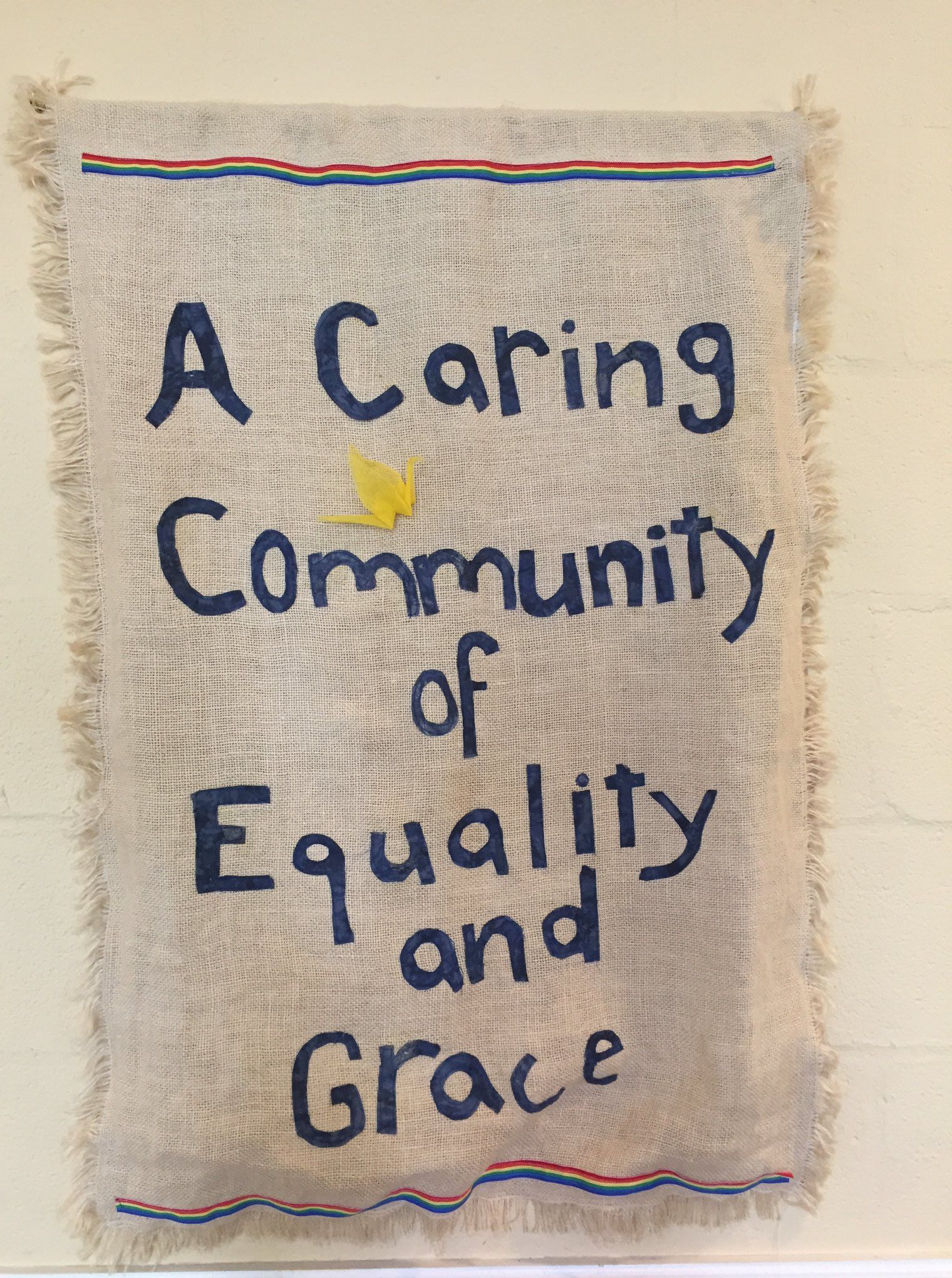
Dear Kelly, What would happen if you did not save dying for the end of your life? Love, God That is the lingering question of my seminary journey and the current lament of my Lenten life. For the record, I do not recommend going to seminary during middle age, particularly if life as you know it is pretty dang good. Especially if the definition of good involves words like ordered, controlled, prestige, or power. If you can foresee a global pandemic crushing your last year then you might *really* reconsider. Here’s what I’m trying to say: God may take you on a journey that calls you to die to the “good” life you have known forever. And then you’ll have a choice. Die to the life you’ve known and live in the one God has prepared for you… The one God has prepared you for... …Or… Go back to the former “good” life, live a lie, and die later. Some context… That question arose from a reading in my Pastoral Care class a couple years ago. The author suggested that we imagine the whole of our lives as a cyclical process of living, dying, and being resurrected to new life. The challenge was to imagine doing that before our physical deaths… to imagine burying whatever wasn’t life-giving and following Jesus into a new, resurrected existence. Interesting, I thought. Also, impossible. Fast forward two years and we arrive at the present pandemic stage of history. Like a lot of you, I’ve tried to calm my nerves by reading. Because I enjoy punishing myself, I picked up Prodigal Summer by Barbara Kingsolver followed by Glennon Doyle’s Untamed . (If you are expecting juicy gossip in this next paragraph, then you’re gonna be really disappointed…) Barbara renewed my appreciation for the interconnectedness of all living things – the Earth, insects, plants, animals, humans – and love in all its passionate, perfect forms. Don’t get me wrong, it’s a wonderful book. I loved every page of it. The problem was that I read it while being quarantined from the community I need most in this world. (It may be important to recognize that I sucked in every ounce of air in the room after I wrote that last sentence…) Then there’s Glennon’s book... I’m still processing that impact. Here’s the passage that is screaming loudly to me right now: “(Kelly,) There are two orders of things: There is the seen order unfolding in front of us every day on our streets and in the news. In this visible order, violence reigns and children are shot in their schools and warmongers prosper and 1 percent of the world hoards half of all we have. We call this order of things reality. This is the way things are. It’s all we can see because it’s all we’ve ever seen. Yet something inside us rejects it. We know instinctively: This is not the intended order of things. This is not how things are meant to be. We know that there is a better, truer, wilder way. That better way is the unseen order inside us. It is the vision we carry in our imagination about a truer, more beautiful world – one in which all children have enough to eat and we no longer kill each other and mothers do not have to cross deserts with their babies on their backs. This better idea is what Jews call shalom, Buddhists call nirvana, Christians call heaven, Muslims call salaam, and many agnostics call peace. It is not a place out there – not yet; it’s the hopeful swelling in here, pressing through our skin, insisting that it was all meant to be more beautiful than this. And it can be, if we refuse to wait to die and go to heaven and instead find heaven inside us and give birth to it here and now. If we work to make the vision of the unseen order swelling inside us visible in our lives, home, and nations, we will make reality more beautiful. On Earth as it is in heaven. In our material world as it is in our imagination.” (Untamed, 65) My dying seems inextricably tied to the birth of a “better, truer, wilder way.” Yours might too. Love, Kelly
